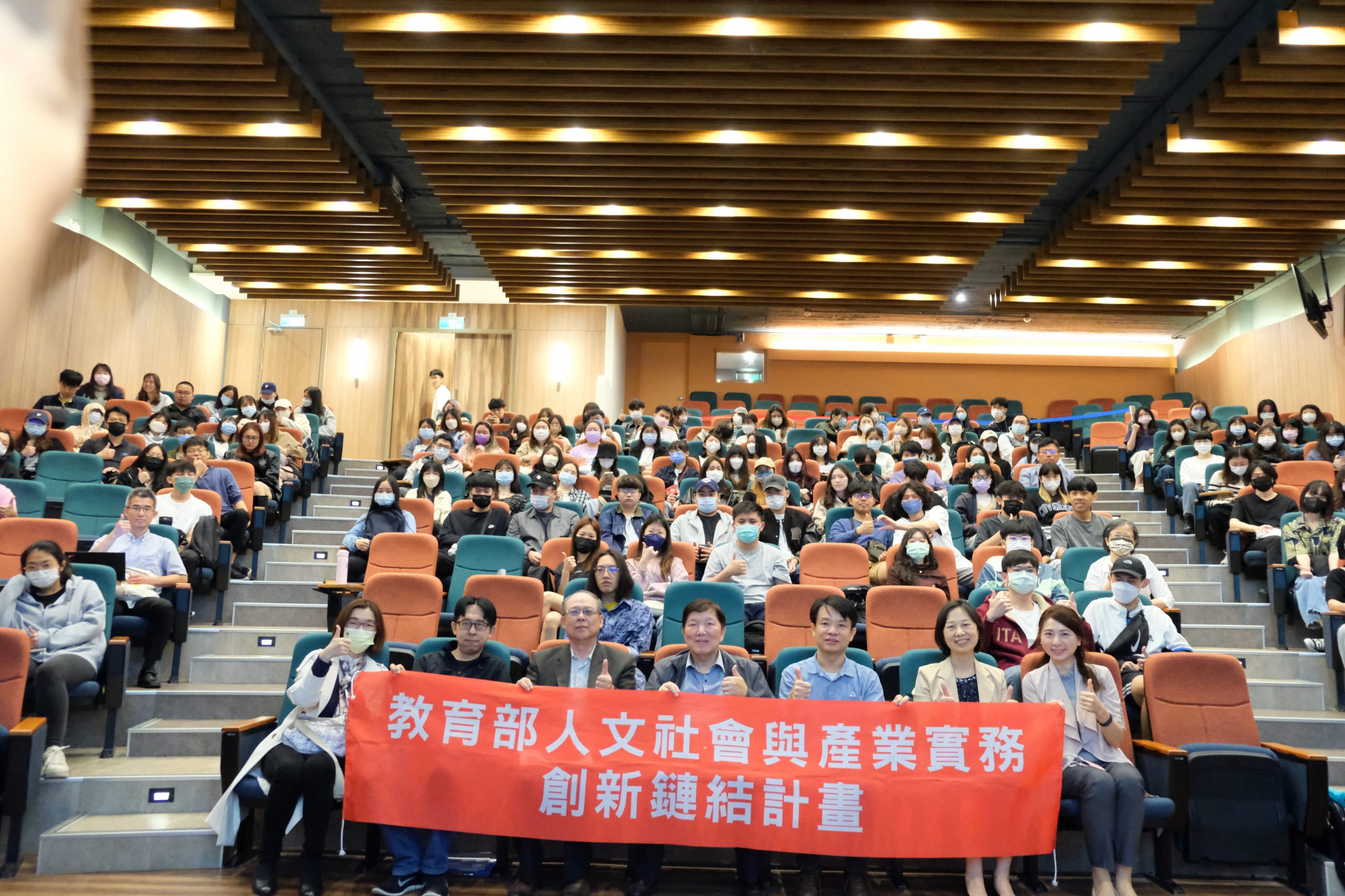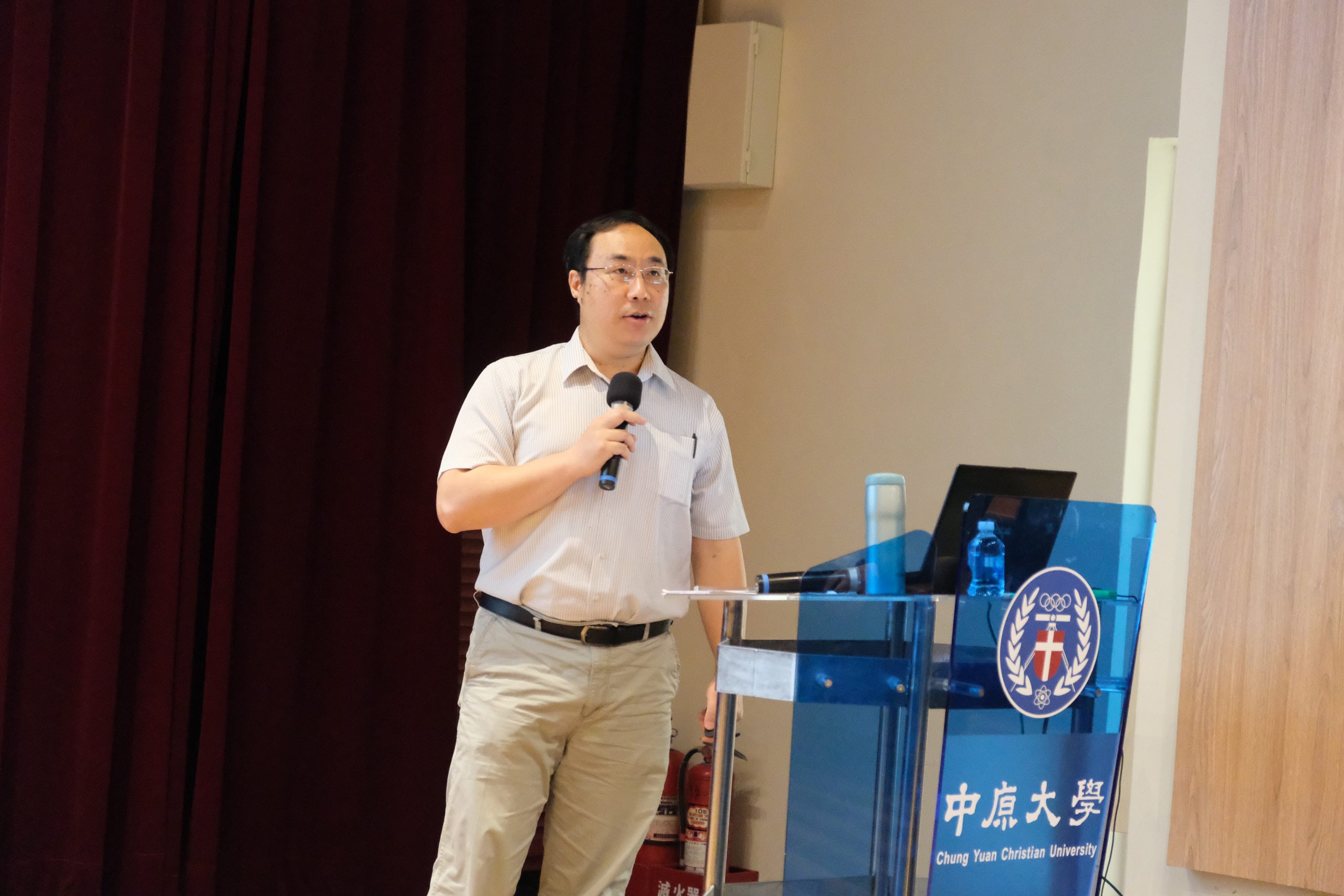Since the 2010s, advancements in deep learning and high-performance computing have lowered computational costs. The emergence of generative AI tools like ChatGPT in 2023 has reignited the AI revolution. Under the guidance of the Ministry of Education’s “Humanity-Social Sciences and Industrial Innovation Linkage Program”, the College of Business and the Center for Global Taiwanese Business Studies co-hosted the “AI Innovations for Smart Enterprises” Forum on April 24. The event, supported by the Business Administration, Finance, and Industrial and Systems Engineering departments as well as the Taiwan Association of Business Schools, featured three experts sharing insights into AI applications in startups, finance, and smart manufacturing.
Cheng-Wen Lee, Dean of the College of Business, highlighted that “AI is a crucial subject for faculty and students in business schools today. Many faculty members at Chung Yuan Christian University have already made significant progress in AI research and teaching. To address AI trends, we invited faculty from various disciplines and alumni to discuss how AI, combined with technologies like big data, blockchain, and IoT, can enable employees to focus on high-value innovative tasks, thereby driving the realization of smart enterprises.”

Te-Yi Chan, a researcher from the Science & Technology Policy Research and Information Center, STPI, discussed how AI impacts innovation and entrepreneurship. He noted that AI creates new business opportunities by improving product quality, increasing efficiency, enhancing customer experiences, and supporting fundraising and investment activities. Examples of AI applications included real-time multilingual translation (e.g., between English and Taiwanese), AI-driven predictive modeling to adjust production parameters, and identifying flexible structures in COVID-19 proteins to repurpose existing drugs. AI is also used in monitoring athletes’ physiological states to tailor training programs.
However, Chan also addressed the challenges AI faces, including technological bottlenecks, financial pressures, risks, uncertainties, and ethical or legal issues. He emphasized that generative AI lowers product development costs and accelerates iterations but requires vast datasets and powerful computational infrastructure, intensifying competition for resources. While these developments pose challenges, they also offer substantial opportunities for innovation and entrepreneurship.

Jo-Hui Chen, a professor from the Finance department, explored how AI is advancing financial technology (FinTech). From FinTech 1.0 to 4.0, banking has evolved from physical branches to online platforms, mobile banking, and fully digital banks. AI is now embedded in various financial products. For instance, DBS Bank collaborated with LINE to create the “DBS iBanking Assistant,” which quickly addresses customer inquiries about services and products. AI is also applied to detect abnormal transactions, preventing credit card fraud, and to power robo-advisors for smart investment and credit evaluation analysis.
Chen also noted that regulatory compliance in finance is a complex area requiring AI-driven solutions for internal controls, anti-money laundering operations, and supervisory technologies. As open banking continues to develop, the exponential growth of AI presents risks such as ethical concerns, privacy violations, and market manipulation. Despite these challenges, the demand for skilled talent in AI-driven financial technology offers tremendous career opportunities for students.

Yi-Hsiang Chao, an associate professor from the Industrial and Systems Engineering department and a former researcher at the Industrial Technology Research Institute, shared his expertise in applying AI to smart manufacturing. He discussed the use of Automated Optical Inspection (AOI) to detect defects in product surfaces using optical instruments and image processing technologies. AOI significantly outperforms manual inspection, with the ResNet-152 deep learning model achieving an error rate of just 3.5% compared to 5% for manual checks. This technology is widely used for detecting defects in printed circuit boards (PCBs) and automotive components.

Chao explained that smart manufacturing focuses on maximizing productivity, minimizing costs, and optimizing production parameters. AI technologies enhance scheduling, automate production lines, and integrate AIoT (AI + IoT) solutions, reducing reliance on human experience and increasing efficiency through AI-driven decision-making.



